
Overview
Modernisation of ATM, airport development and the deployment of innovative solutions commonly requires the purchase of systems or services. These purchases need to be fit for purpose, deliver value for money and ultimately fulfil the needs of the company’s strategy. It is the procurement process which enables these outcomes.
At Think we work to support our clients at different stages of the procurement process to guarantee the most beneficial outcome. Our wide experience allows us to bring together comprehensive domain knowledge, a range of tools and techniques to analyse and understand requirements (from real time simulations through market assessment) and a rigorous knowledge of the practicalities of procurement processes to ensure that the right outcomes are obtained.
What can we do to help?
We broadly see the procurement process as comprising three major steps with a number of activities at each. The first step seeks to build the understanding of the organisation’s needs and the background to establish the right tender process. Subsequently, the tender process needs to be run and effectively managed, leading to selection of the optimum tender. Finally, it is important to ensure that the necessary benefits have been obtained and that lessons are learned at the procurement and organisational level to feed into future procurements.
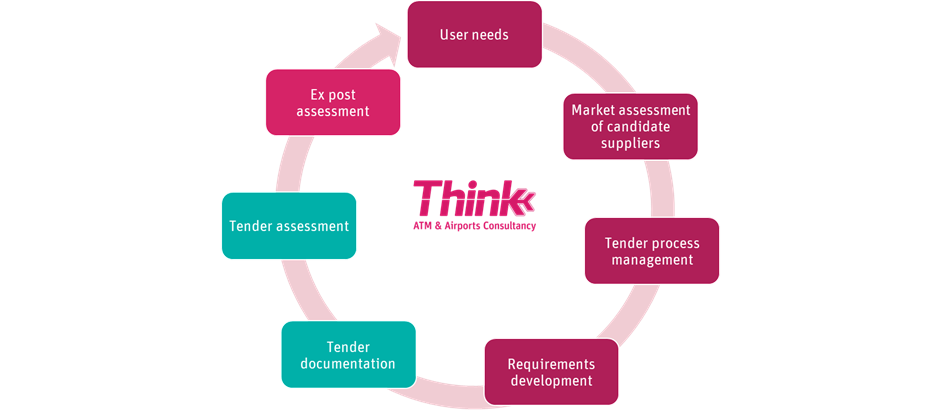
The Procurement Process
Our work usually starts of at an early stage in the process as a client is looking at how they can deploy a technology or solution to meet a specific need. We work to help with the development of an operational concept to ensure that what will be procured can meet the need. We will often help with the market assessment of candidate suppliers undertaking research that enable mapping of the client needs to suppliers offers. This can help make a more effective process as it can condition expectations to what is feasible and help filter out the more extreme requirements a client may make that ultimately are likely to drive cost.
Having a clear picture of the market enables us to manage and structure a specialised tender process. Our team can fully plan and manage the activity entirely, or can work under your own procurement team. We are familiar with a range of tendering strategies, with OJEU and emerging UK equivalents. Based upon our prior experience, we pay particular attention to the establishment of an appropriate governance regime for the procurement.
We are experts in developing user needs into technical requirements. This is based upon our experience in developing and subsequently deploying (over many projects) the European Operational Concept Validation Methodology (EOCVM), an approach developed to ensure new technologies and concepts deliver the benefits that are needed of them. We align the requirements capture process with the EOCVM activities, involving the use of several validation techniques and processes, which provides clients with a more comprehensive output than may be obtained by other consultancies.
Once the requirements are clear, we can help prepare tender documents, facilitate tender briefings, respond to bidders technical questions, run and participate in tender assessments and support the negotiations leading to contract award. The preparation of the tender documents requires the production of documents that reflect the requirements, the assessment criteria for the call and the distribution of it. When offers are received our team’s experience can support the evaluation and decision process using the relevant procurement rules and directives such as the OJEU or the UK’s Find a Tender Service.
At the final step we can ensure a proper and transparent ex post assessment of the services or technology in order to meet the contract agreement and ensure delivery of the desired benefits. Depending on the services and technologies, we may analyse financial aspects, delivery times, as well as quality and performance specifications. All the delivered tools and systems will be closely verified and checked to make sure they are aligned with the specified requirements. Through a final validation process, any changes made on the operational concept, service or technology will be assessed for ensuring an acceptable delivery and, if required, further improvements will be proposed.

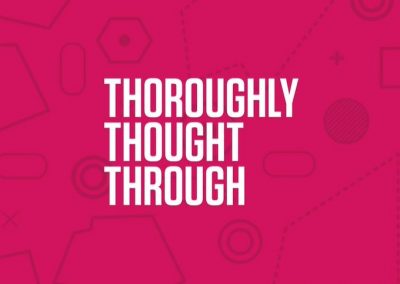
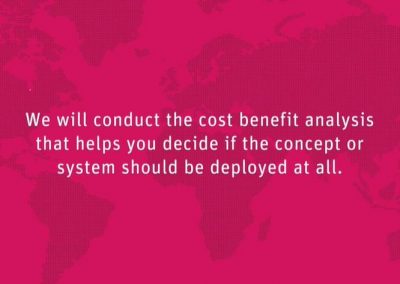
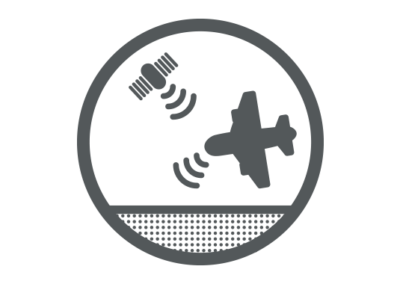


Recent Comments